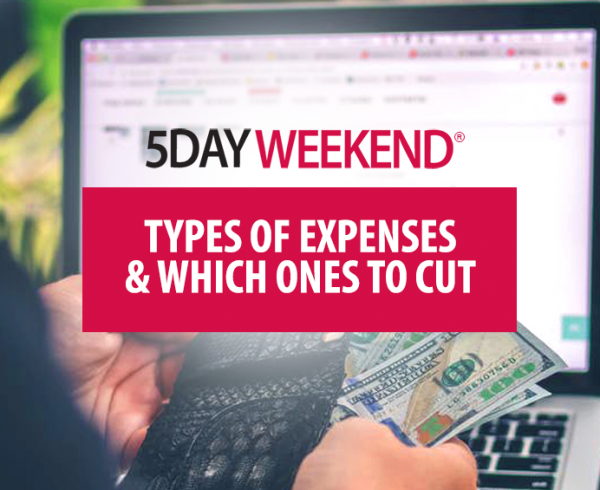In most cases vision is a good thing. But when you first start something on the side, in many ways vision can actually hold you back. All too often people get scared away from entrepreneurship because they see a vision of how much they have to build, and it feels too overwhelming.
The key is to think in terms of a minimum viable product. Forget about some grandiose scheme that will require a large capital investment, a team, infrastructure, etc. Learn to take things to market with very little if any capital expenditure.
Become an expert on a strategy that my 5 Day Weekend collaborator Garrett Gunderson calls “Win, Then Play.” In other words, before you fully commit to a project or opportunity, first test its market viability. Do everything you can to prove market demand before investing a ton of time, money, and energy into it. To use a baseball analogy, you don’t have to hit a home run— you just have to make contact with the ball and get it in play.

As the renowned thought leader and marketer Seth Godin puts it, “Start your first business this way: Begin with the smallest possible project in which someone will pay you money to solve a problem they know they have. Charge less than it’s worth and more than it costs you. Repeat. You don’t have to wait for perfect or large or revered or amazing. You can start.”
Stephen Palmer is an author and purpose coach. Wanting to increase his independent income, he started brainstorming possibilities. He came up with the idea to write and design similar inspirational “life manifestos” as posters and canvas prints.
He had no idea whether or not he could sell them, however. So instead of investing a bunch of time and money up front, he simply wrote one manifesto, the “Family Manifesto,” and paid a graphic designer to design it. He didn’t set up a business entity. He didn’t have a website. He printed just one copy of his poster so he could take pictures of it framed. He offered it for sale on a daily deals site (similar to Groupon). Based on other products he was seeing on the site, he figured that if he sold at least 50, the idea would be worth pursuing. Otherwise, he’d drop it and try something else.

He was pleasantly surprised when he sold 392 copies on his first offer. He hurried and printed enough to fulfill those initial orders. Then and only then did he start developing the business. He now has a fully developed e-commerce site offering 12 different manifestos in three different formats, and the business generates thousands of dollars in profits per year with very little time. The only money he invested up front out of his own pocket was to pay a graphic designer for his first poster. Since his first offer, the business has paid for itself. Any other investment he’s had to make has come from poster sales, not out of his own pocket.
Test market demand and adjust as necessary. Some of your ideas may be complete ops with no market demand. Some of them may be home runs. You won’t know until you do something.
I speak about this in my next post, where I explore the principle of steady, incremental progress, or kaizen.
I’d love to hear your ideas – what might work for you? Thank you for sharing!
Secure your copy of the “5 Day Weekend” book. 5 Day Weekend: Freedom to Make Your Life and Work Rich with Purpose [Nik Halik & Garrett Gunderson]
















Leave a Comment